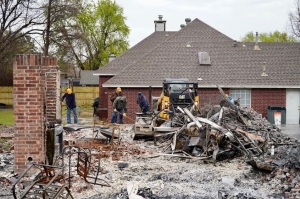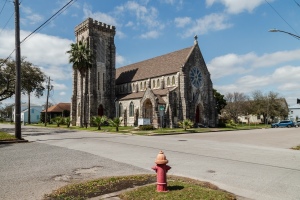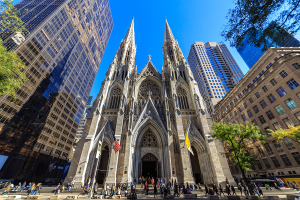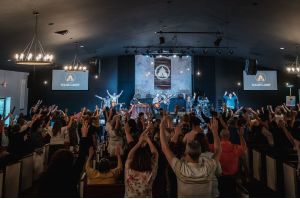Md. Group Rallies Against Gay Marriage Bill, Rejects 'Protections'
Maryland Marriage Alliance leaders said liberals cannot bribe them into accepting same-sex marriage legalization with religious protections. The group is moving forward with a pro-traditional marriage rally planned for Monday night.
Julia Vidmar, spokesperson for the Maryland Marriage Alliance, told The Christian Post that the new religious protections built into Maryland General Assembly's 2012 gay marriage bill has not changed Christian leaders' opposition to legally recognize gay marriage.
In fact, the protections served as validation of their concerns.
"The very fact that a religious protection had to be put into the bill shows that there is an impingement on religious liberty in the bill itself," she said in an email.
The question of religious freedom has drawn many churches, denominations, family groups and political leaders together, Maryland Marriage Alliance leader Derek McCoy told CP last month. Now many of those alliance members plan to show the state legislature their strength with an outdoor rally Monday evening in Annapolis.
The Rally for Marriage is taking place from 6 to 8 p.m.
Members of the bipartisan group of lawmakers who opposed gay marriage last year is hosting the rally. Pastor and Democratic state Sen. C. Anthony Muse (Prince George's County) is scheduled to speak along with fellow Democrat and county representative Del. Jay Walker.
Baltimore City Democrat Del. Cheryl Glenn also announced she would switch sides to join traditional marriage supporters.
Vidmar is confident that between 500 and 1,000 alliance leaders and supporters will assemble in the state capital, but expects many more to join the rally.
"The response we have had during our advertising campaign has been overwhelmingly positive and it shows us that the people of Maryland are really concerned about this issue," she said.
Maryland has deep religious roots as the location of the first great metropolitan Cathedral constructed in America. However, it is a historically Democratic state. Its governor, Martin O'Malley, is also close political allies with President Barack Obama.
Last year, O'Malley, a Catholic, expressed his support for the gay marriage bill which had passed the state General Assembly and eventually stalled in the state Senate. However, he did not publicly advocate the bill's passage.
This year, at the request of gay rights advocates, the governor has made the bill a legislative priority, appeared in the online video introducing the legislative effort and advocated for the bill in various speaking engagements.
He also added religious protections to the bill believed to protect religious institutions while extending the rights of the lesbian, gay, bisexual and transgender communities. Last year's bill would have allowed churches the right not to host or recognize LGBT unions. This year's bill also proposes to protect religious leaders and churches from lawsuits, loss of state funds or changes in church teachings.
The protections, O'Malley said in a Jan. 24 press conference, are "explicit in this bill than they have been in any other bill around the country."
Yet Alliance spokeswoman Vidmar doubted the strength of such protections.
"Once marriage between a man and a woman is no longer protected by civil law then this opens up a loss of protection in other ways," she said.
Vidmar continued, "If a marriage between a man and a man is considered equal to one between a man and a woman, then how can a church stand against any lawsuit that is brought against it in this way? We have seen in other states that have legalized same-sex marriage that Catholic Charities has been forced to close because they could not live out their beliefs with the redefined marriage laws. "
Faith-based adoption and foster care agency Catholic Charities was forced to close its doors in Illinois because its faith beliefs kept them from placing children with same-sex couples joined in state-recognized civil unions. Despite religious freedom protections in the state law allowing civil unions, the state cut its contracts with Catholic Charities.
Peter Breen, the attorney who represented Catholic Charities, said in 2011 statement regarding the incident, "This stands as a stark lesson to the rest of the nation that legislators promising 'religious protection' in same-sex marriage and civil union laws may not be able to deliver on those promises."
Vidmar also concluded, "No religious protection or exemption will protect churches, pastors, and religious organizations. If the government concern was with religious protection, it would be working to protect the definition of marriage in Maryland."





























